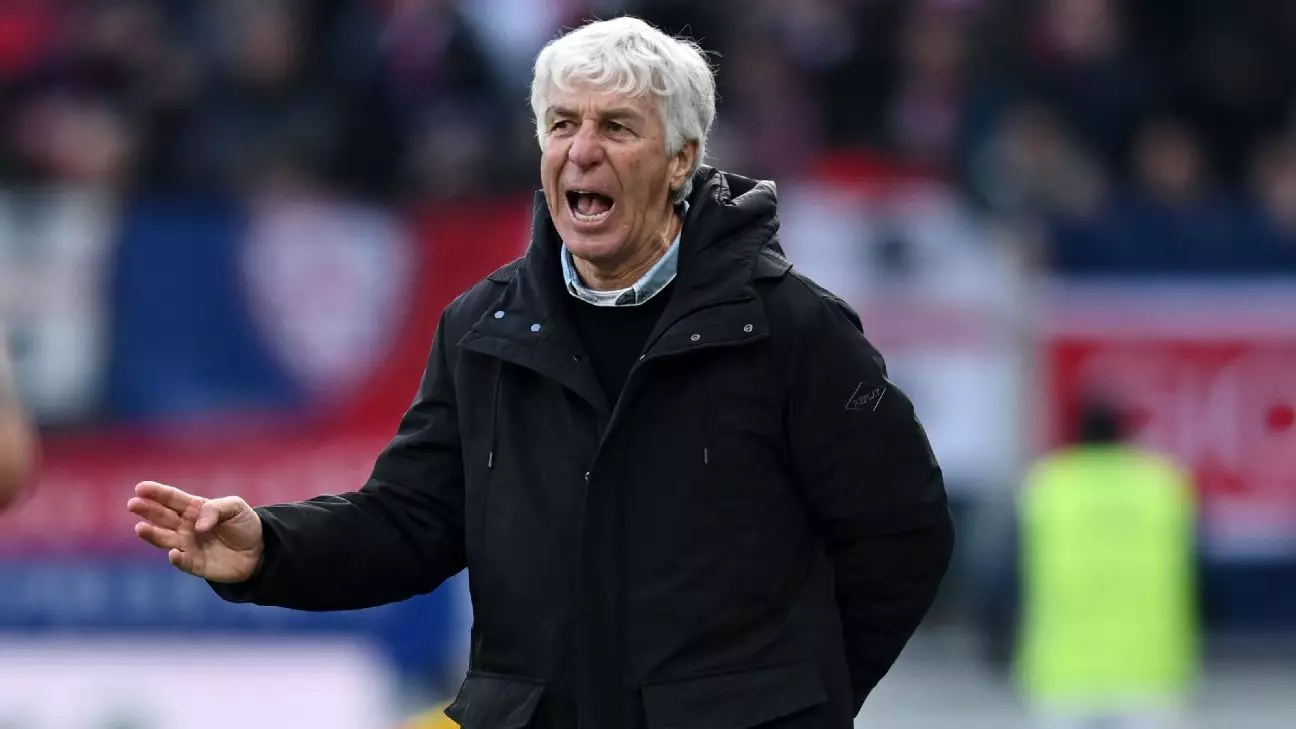In competitive sports, interactions between coaches and players can often lead to misunderstandings. A recent incident involving Atalanta’s coach Gian Piero Gasperini and striker Ademola Lookman has highlighted this dynamic, showcasing how quickly words can be misinterpreted and conflict can arise. Following a disappointing elimination from the Champions League at the hands of Club Brugge, Gasperini’s comments regarding Lookman’s penalty-taking skills ignited a controversy that escalated into what the player termed a “deeply disrespectful” assessment of his abilities.
Atalanta, aiming to build on their previous successes, found themselves on the back foot after a 3-1 defeat in the second leg of their playoff tie against Club Brugge, culminating in a 5-2 aggregate loss. Ademola Lookman, a key player touted for his scoring prowess, appeared to salvage some dignity for the team by netting a goal, albeit in a losing effort. His previous stellar season, where he played a pivotal role in winning the Europa League, seems to have created heightened expectations. However, his performance took a downturn when he missed a crucial penalty—a moment that would amplify the post-match scrutiny.
Gasperini’s critique of Lookman as one of the “worst penalty takers” he had encountered was not well-received. Such a pointed remark can undoubtedly lead to feelings of humiliation and doubt. Lookman’s Instagram response indicated that he felt singled out, a sentiment that could breed resentment within the team dynamics. The conflict illuminated the importance of mindful communication in team sports. Gasperini’s subsequent clarification sought to mitigate the fallout, stating his intention was never to offend Lookman. He tried to position the incident within a broader context—comparing it to a similar penalty situation involving Udinese—highlighting the complexities of player responsibility on the field.
In reflecting on the situation, it becomes clear that it goes beyond just a miscommunication. Team dynamics and morale are paramount. Gasperini articulated a desire for Lookman to take charge in such situations and lead by example, suggesting that encouraging players to step into leadership roles can foster team unity. If handled correctly, lessons can be learned from this incident: communication must remain open, and players should feel empowered rather than marginalized for mistakes.
As Atalanta prepares for a crucial match against Empoli, the focus shifts back to performance on the pitch. Gasperini acknowledged Empoli’s capability and the challenges they pose, suggesting that his squad must unify to tackle their opponents effectively. Moving forward, resolving interpersonal conflicts and re-establishing a collective purpose could be the linchpin for revitalizing Atalanta’s season amidst the backdrop of recent tensions. The road ahead is steep, but with clear communication and mutual respect, the team can harness its collective potential to overcome any obstacles that lie ahead.

